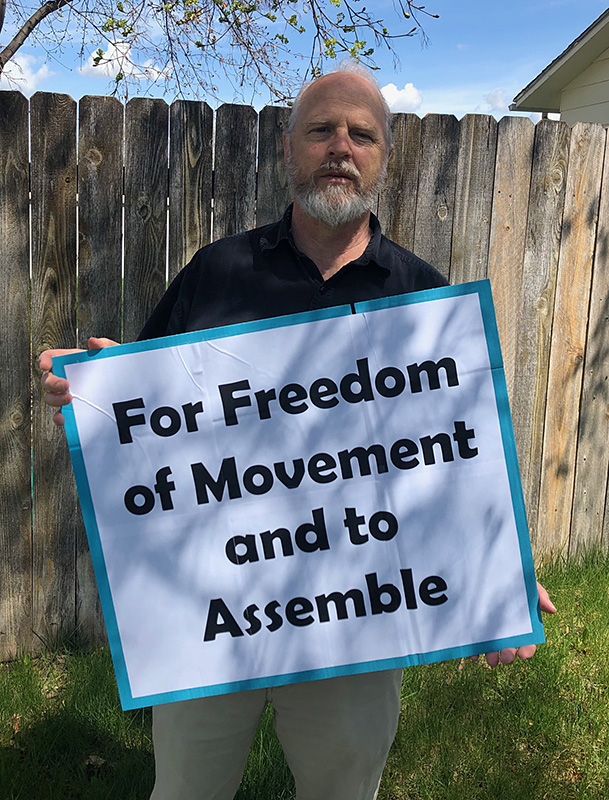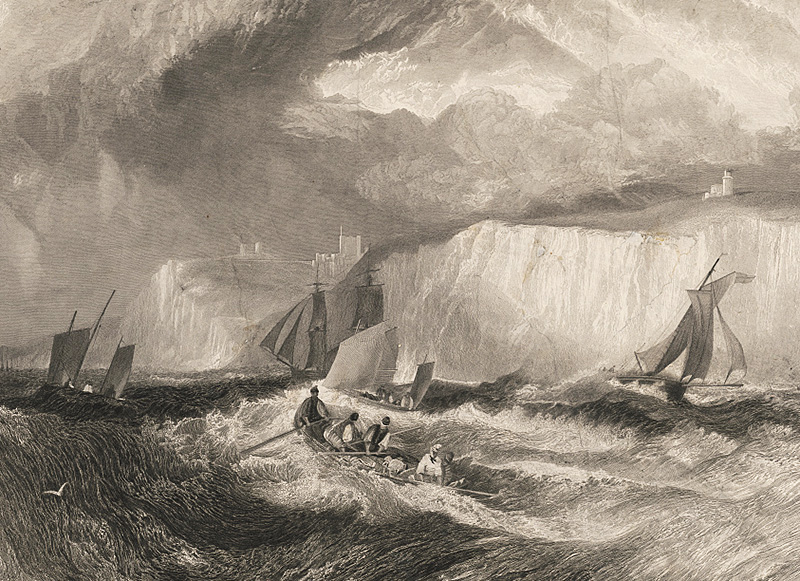Being a peacemaker at heart, and deeply disturbed by the anger and animosity on display in protests and riots in current and recent news, I was inspired by this Facebook post by songwriter John Stringer:
What if sharing #blacklivesmatter was a way to say “I love you” to the slaves that built this country but were never thanked? #blacklivesmatter
#limitlessloveandlight
What if it were a way to say “thank you” to those who gave their lives to bring equality in human relationships, in civil rights, in education and economic opportunity? #blacklivesmatter
What if simply acknowledging #blacklivesmatter was one way to send love to the black ancestors and their descendant – the current generations; a way to say thank you for being the glorious children of God that you are and have always been? #blacklivesmatter
What if it were a simple way to support and encourage the descendants of those who were dehumanized, oppressed, demonized, lynched and murdered just for being black? #blacklivesmatter
What if it were a way to show unity, acknowledging that black lives deserve the same care and respect as ALL LIVES? #blacklivesmatter
What if it were a simple way to shift the collective consciousness of this world by shining a light of love and VALUE on something that has been systematiclly devalued, both consciously and unconsciously, intentionally and unintentionally? #blacklivesmatter
What if it were a way to put ointment on a wound that takes the collective love of humanity to heal? #blacklivesmatter
What if it were all of this and more just by you choosing it to be?
In this moment, that is exactly what it means to me. #blacklivesmatter
The use of one simple slogan to say so much is an idea I happily embrace. Many who are unfamiliar with the history of what has been termed “anti-blackness” in America may be tempted to add “only” to the beginning of the slogan “Black Lives Matter”. And then dismiss it by responding with “All Lives Matter”. What the Black Lives Matter movement spends a lot of time trying to get people to understand is they are not saying that only blacks matter, but that blacks matter equally as much as all other lives. Instead of adding “only” to the front of the slogan, they suggest we add “too” to the end of it. I like the example one person gave by asking, “Do people who change #BlackLivesMatter to #AllLivesMatter run thru a cancer fundrasier going ‘THERE ARE OTHER DISEASES TOO’?”
Last year on my return trip home from visiting my daughter in Washington state, I made this note in my journal:
“I saw a red haired white man sitting across from me at the airport while I was waiting for my flight. He was wearing a shirt that said, ‘All Lives Don’t Matter Until Black Lives Matter’. Regardless of what I may think of the statement, I admired how he apparently cares about others outside his own race. What a beautiful sentiment. God bless him!”

When used in this way, I agree with and readily embrace the idea the slogan Black Lives Matter promotes. On the other hand, showing support for the organization Black Lives Matter Foundation, Inc is an entirely different thing altogether for me.
The Problem with Fighting Evil
From their About page (blacklivesmatter.com):
Black Lives Matter Foundation, Inc is a global organization in the US, UK, and Canada, whose mission is to eradicate white supremacy and build local power to intervene in violence inflicted on Black communities by the state and vigilantes.
Browsing their site you will find statements encouraging a fight to “combat anti-Black racism across the globe“, create “a world free of anti-Blackness“, and “whose mission is to eradicate white supremacy“. The founders state, “We have fought like hell for our freedom and we will continue to fight like hell.”
“What on earth is wrong with any of that?” you say.
While I admit there is much good in these as ideals, I would respond with the same line of reasoning I used three years ago to question the value in fighting against porn. There seems to be something inherently wrong with attempting to eradicate evil. Ask yourself, doesn’t fighting against something, still encourage fighting?
I love this quote from Mother Teresa, “I was once asked why I don’t participate in anti-war demonstrations. I said that I will never do that, but as soon as you have a pro-peace rally, I’ll be there.”
Is it better to hate war, or love peace?
When you institutionalize a fight against evil, the organization becomes a machine that takes on a life of its own. Like wolves in nature that never fully consume the stock of prey it feeds on because it relies on it for its survival, the engine of the institution requires the resource that fuels it. In the case of “Black Lives Matter Foundation, Inc”, that resource appears to be anger and racism.
Quoting from my post from three years ago:
Something about capitalizing on fighting against anything “bad” makes me tend to question motives (“non-profit” doesn’t mean that nobody is profiting from it). I’m reminded of the documentary, Pink Ribbons Inc., Capitalizing on Hope.
“The film documents how some companies use pink ribbon-related marketing to increase sales while contributing only a small fraction of proceeds to the cause, or use “pinkwashing” to improve their public image while manufacturing products that may be carcinogenic.”
(wikipedia article, Pink Ribbons Inc.)I believe it is the nature of institutions to take on a life of their own. Over time they tend to protect themselves and fight to survive just like any other living thing. In the case of Fight The New Drug, for example, if any solution emerged that could actually eliminate porn, it would threaten the life of the organization. There are people whose livelihoods depend on the existence of the organization, and, because it’s mission is to fight against it, the organization requires the existence of porn in order to survive. (Perhaps Mother Teresa really does make a good point)
The story of the March of Dimes gives a better example of what happens when an organization, whose mission was to find a cure for polio, struggled to survive after the cure was found.
“In his book Essentials of Sociology: A Down-to-Earth Approach, sociologist Professor James M. Henslin describes March of Dimes as a bureaucracy that has taken on a life of its own through a classic example of a process called goal displacement. Faced with redundancy after Jonas Salk discovered the polio vaccine, it adopted a new mission, ‘fighting birth defects’, which was recently changed to a vaguer goal of “breakthrough for babies”, rather than disbanding.”
Greenwald, Howard P. (2007). Organizations: Management Without Control. Sage Publications, Inc. p. 369. (reference given in wikipedia)
What I am NOT saying when I say Black Lives Matter
While I embrace using the slogan to show my love and support for black lives, we should recognize that not all who wave the banner “Black Lives Matter” are on the same page with what they mean when they say it. What I do NOT embrace is the use of the slogan to promote an agenda that would turn the tables on oppression.
Nothing exemplifies this better than the controversy at Evergreen State University in March 2017 involving Bret Weinstein . He was a professor of biology at the time, but as a result of the events that took place there, Weinstein has since resigned. The story of Evergreen has important implications to what we see happening in the Black Lives Matter movement today, and I encourage the reader to research it more. For the purposes of this article I will only highlight some relevant points. Bret describes himself as a progressive.
“I lean left BIG TIME,” Bret explains. Then later he laments over the overt display of aggression witnessed on the Evergreen campus:
“The issue here is that the mere thought — the skeptic mindset — is being criticized… Since when is rejecting skepticism universal and acceptable? It seems identical to extreme right wing regimes, but should not be the case in liberal democracies.
The Controversy of Bret Weinstein Explained — The Evergreen Scandal, Jakub Ferencik, Jan 8, 2018, Noteworthy – The Journal Blog
Liberal minds simply cannot act this way… It needs to be okay to disagree on political matters and still remain to be civil with one another. That is what we should expect from a democracy.”
In a May 2018 speech to Students For Liberty conference in Vancouver, B.C., Brett remarked:
Were it the objective of this social justice movement to confront the much more difficult problems and to confront them at the full level of nuance, I would be interested in seeing those problems addressed. But I cannot sign up with a movement that is attacking those people who have come the greatest distance toward creating an equitable situation.
So what is it that this movement is actually trying to achieve? Now remember I’m arguing that there are actually two groups embedded in one movement. One of those groups is really hoping to achieve some kind of equality. Hopefully they’re pursuing equality of opportunity not equality of result. But nonetheless, equality is something I would guess everybody in the room here would sign up for as an ideal that would be worth pursuing. But then there’s the other faction. The faction that I’m arguing is actually driving the agenda of the movement. What do they want? Well it’s very uncomfortable, and in fact I got into big trouble for tweeting that the movement at Evergreen was actually involved in achieving black supremacy. Now it’s interesting, I must have been challenged 20 times over having used the term “black supremacy”. Not once did anybody tell me that that was not what they had seen unfolding during the protest at Evergreen. They told me effectively that that was an impolite term for it. But we had all seen it. We had all seen the circumstance where people would walk into a room and they would say, the food, the chairs, the water – That’s not for white people. If you’re a white person, stand in the back, don’t sit in the chairs, don’t eat the food. This was actually said out loud. So in some sense it’s undeniable that what was being pursued was a kind of supremacy. My feeling is I’m against any kind of supremacy. I would like to see everybody have access to the means to get ahead through achievement. I don’t want to see any population advantaged in any population disadvantaged. So I’m “anti supremacy”. And that means that I have to be offended – if I’m to be consistent with that principle, I have to be offended when any population seeks supremacy over everybody else. Nonetheless we find ourselves trapped in a situation where we can’t even use the terms that naturally apply.
Bret Weinstein, How the Magic Trick is Done, starting at 29:09 min
If the intent is to encourage diversity and inclusion in our society, then any suppression of speech, even if it’s in an effort to temper disagreements, will be counter-intuitive to the very objectives we are trying to promote. As President Obama said:
“[E]fforts to restrict speech can become a tool to silence critics, or oppress minorities… the strongest weapon against hateful speech is not repression, it is more speech.”
President Obama’s speech to the UN general assembly – full transcript Delivered to the UN in New York on 25 September 2012
In other words, it seems to me that in an effort to create a peaceful environment, it’s possible that an attempt to suppress conflict can engender a climate where people feel unsafe, rather than feeling safe, in expressing their views. I’ve recently become aware of something known as the shame of white silence, often embodied in phrases like “white silence equals white consent” or “white silence is violence”. The best way to ensure that people feel empowered to speak up, express their concerns, and try to understand others, is to allow for the expression of tolerant views, even if those views may offend or give insult to others.
In a speech given at TEDWomen 2018, Eldra Jackson gives an excellent example of how this kind of open and empowered expression of views is a powerful benefit. In his speech, Eldra attributes “24 years of a life sentence in prison for kidnapping, robbery, and attempted murder” on “a disease that has come to be known as toxic masculinity.” See Eldra Jackson – TED Women 2018, How to break the cycle of toxic masculinity. (starting at :38 min mark.)
Eldra found a cure through Inside Circle, an organization founded by Patrick Nolan to combat gang violence in the prison yard. Through an exercise called Circle Time — “men sitting with men and cutting through the bullshit and challenging structural ways of thinking” — Jackson learned that “characteristics usually defined as weaknesses are parts of the whole, healthy man.” It is because men can share candidly and openly without worrying if their words might offend that the program was able to make such impact in these men’s lives. Yet in our our society today this type of environment seems to be harshly discouraged rather than encouraged. It’s as if we’re saying that it’s OK for a bunch of men in a prison yard to be thrown into a situation where brutal honesty can bring reconciliation and healing, but we can’t allow it in society where some minority might be offended?
We may give lip service to ideas of exploring our differences in a safe, positive and nurturing environment, but how do we implement them in fairness to everyone when we place higher value on “not offending” over tolerance? Tolerance requires disagreement. Insisting on agreement is not tolerance, but its opposite.
The subject of free speech and safe spaces on college campuses was the topic of Bret Weinstein’s testimony given to congress on May 22, 2018. In his testimony Bret explained that the crisis isn’t primarily about free speech, and won’t be limited to college campuses for long.
Where others may suggest the culprits of injustice and inequality are an authoritarian wealthy class of elite masters of the global economy, Bret’s investigation of his experiences at Evergreen leads him to conclude the true culprits are not so easily identified.
“Am I alleging a conspiracy? No. What I have seen functions much more like a cult in which the purpose is only understood by the leaders, and the rest have been seduced into a carefully architected fiction. Most of the people involved in this movement earnestly believe that they are acting nobly to end oppression. Only the leaders understand that the true goal is to turn the tables of oppression. Something is seriously and dangerously amiss. At this moment in history the center does not hold. Partisan polarization and political corruption have rendered government ineffective, predatory, and often cruelly indifferent to the suffering of American citizens. Tribalism is the natural result.”
Bret Weinstein Testifies to Congress on The Evergreen State College riots, Free Speech & Safe Spaces


